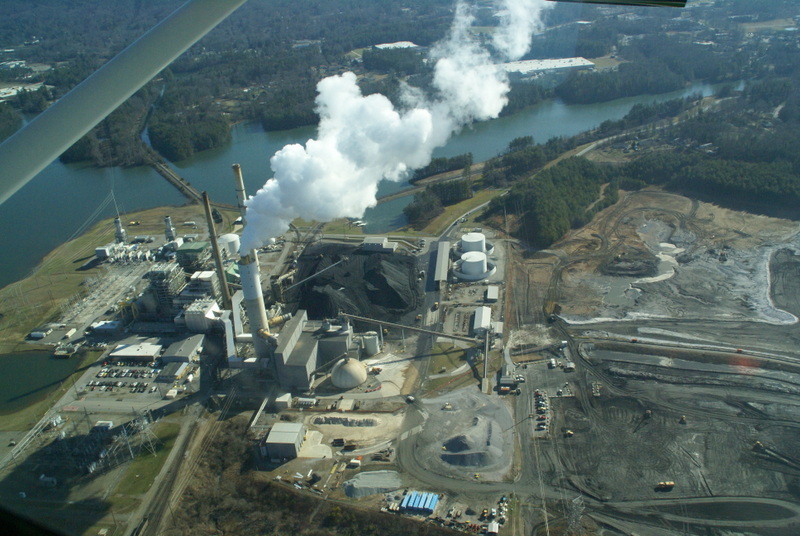Photo Courtesy of South Wings
Last Thursday Duke Energy pleaded guilty in a criminal court to nine violations of the federal Clean Water Act. The charges came after a lengthy investigation that was spurred by Duke’s accidental discharge of tons of coal ash into the Dan River in February of 2014. The spill was caused by the failure of a storm water pipe under an unlined ash pit and ultimately coated 70 miles of the Dan River in toxic, gray sludge.
Duke is now ordered to pay $102 million in fines and environmental restoration fees for its illegal discharge of coal ash at not only the Dan River site but at four separate coal burning facilities in North Carolina. $68 million of that sum amounts to fines alone, while the remaining $34 is slated for river and wetland projects in North Carolina and Virginia. Among other things, the investigation found that Duke knowingly directed coal ash seeps from a pit in Asheville into the French Broad River and failed to take action for two years after employees at the Moncure plant informed supervisors of a leaking riser pipe in 2011.
In the wake of these charges, Duke has announced plans to retire it’s Lake Julian plant in Asheville, a major source of coal ash pollution in Western North Carolina. According to Duke officials, the Lake Julian plant, which has been used to refine coal since the early 1960s, will be shuttered in four to five years and replaced with a 650-megawatt natural-gas facility with a solar installation. The switch represents a $1.1 billion investment for the country’s largest utility and will include the construction of a $323 million substation in Campabello, South Carolina.
“We’ve developed an innovative plan that’s a ‘win-win-win’ for consumers, the environment and the economy,” said Lloyd Yates, Duke Energy executive vice president of market solutions and president of the Carolinas region. “With the availability and near record low cost of natural gas, this comprehensive project will transform the energy system in the region to meet the growing needs of our customers and significantly reduce emissions and water use. We’re eager to move ahead quickly on these projects and complete the key components of the plan by the end of 2019.”
Duke says this combination of natural-gas and solar would be one of the first facilities of its kind, but some North Carolina activists, such as Mountain True and the Southern Environmental Law Center, aren’t satisfied. They say that, while the new plant represents a step in the right direction, it will still be a massive source of pollution.
“While we applaud Duke’s decision to retire the Asheville plant, Duke failed to hear what people wanted in its place. Folks want a bright future that supports clean energy, not a giant gas plant polluting Asheville for another 30 years,” reads a joint statement from MountainTrue, Sierra Club, and the Southern Environmental Law Center. “North Carolina has the opportunity to be a leader in clean energy generation through aggressive investments in solar power and energy efficiency, and Duke Energy must be a partner in that effort – but moves like this deeply undermine the ability to bring online clean, reliable 21st century energy options that will create good jobs right here at home.”








